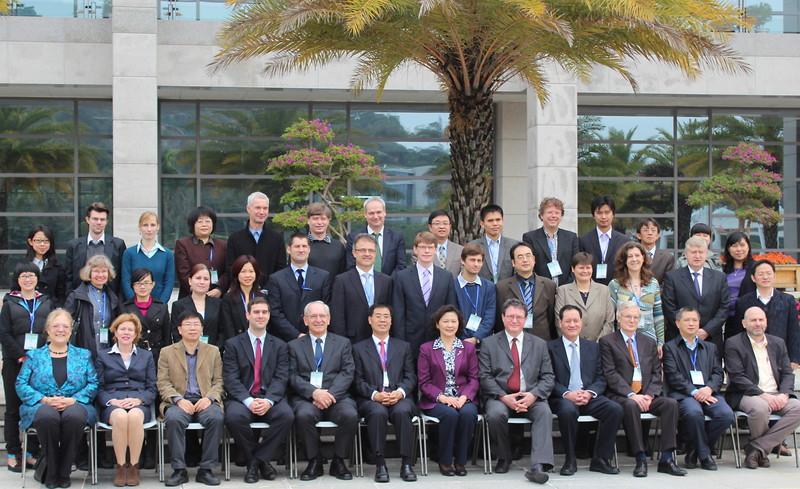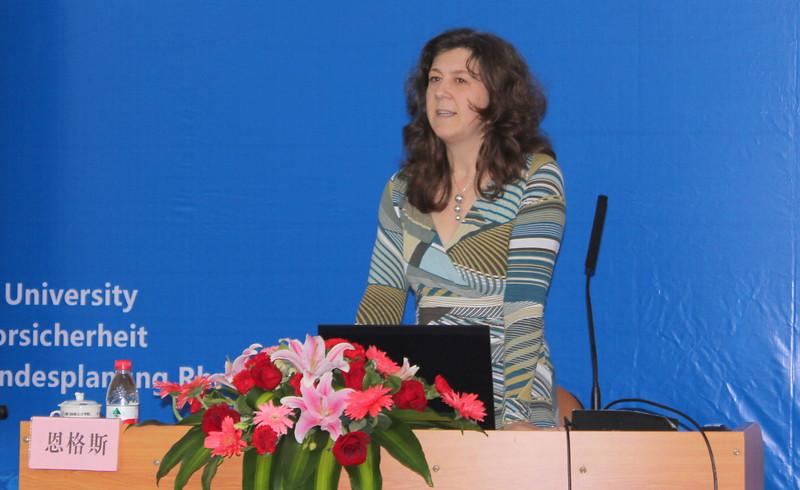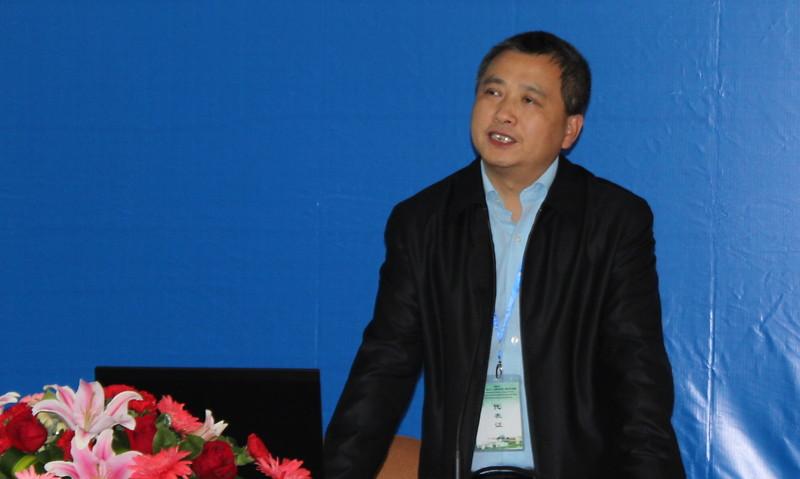Event reports
The workshop is part of the Sino-German Environmental Dialogue with the aim of identifying potential further cooperation. The program included the discussion on the required legal and political framework for a sustainable economy, resource efficiency and climate protection. Furthermore practical experiences were exchanged especially in terms of resource efficiency. One of the key aspects was the contribution of the civil society to a sustainable economy.
Prof. Zhan Xinli, vice president of the Xiamen University, gave the welcome speech and stressed the growing importance of a sustainable economic development in China. She referred to the fact that the Communist Party included environmental protection in its party statute during the 18th Party Congress.
Dr. Gottfried Jung, MWKEL Rhineland-Palatinate, outlined the cooperation with the city of Xiamen and the Xiamen University, which is part of the cooperation between Rhineland-Palatinate and Fujian province.
Andreas Dittrich, project assistant at the Konrad-Adenauer-Stiftung|Shanghai, pointed out that China is a country of “different speeds” in the area of environmental protection. As in many parts of the country quantitative economic growth is often the major goal of local governments, best practice examples of a low carbon development like in Xiamen are important to showcase alternative development paths and should therefore receive specific international support, especially from Germany.
The first panel dealt with the legal framework in Germany and China. Dr. Haiko Pieplow, BMU, described the German Resource Efficiency Programme from 2012. The programme is supposed to achieve the decoupling of economic growth and resource input in Germany. The BMU gives incentives, offers information and trainings and also supports voluntary measures of companies.
Prof. Dr. Peter Heck, Institute for Applied Material Flow Management (IfaS), presented the Zero Emissions Campus in Birkenfeld. The waste incurred on the campus is used for the production of energy. Prof. Dr. Heck also underlined that China would not be able to adopt the Western development model, due to the global resources which are not available in a sufficient quantity. One option to reduce the amount of waste and at the same time produce energy could be achieved if the separation of recyclable and non-recyclable resources is implemented.
Prof. Dr. Zhu Yuan, China Executive Leadership Academy in Pudong (CELAP), compared the “green” competiveness of 13 cities in the Yangtze delta. In the beginning high investments are necessary to achieve resource efficiency. He pointed out that these would be amortized within a short time and therefore would be worthwhile in the long term.
The second panel discussed the role of companies in environmental and climate protection. The role of the producer’s responsibility for the improvement of resource efficiency was explained by Dr. Dirk Grünhoff, MWKEL. The producer is responsible for the quality and composition of the products, whereas the distributor determines which products from domestic and foreign suppliers are offered in the market. Producers need to set up their own redemption and recycling system, which also requires the consumer’s participation.
Werner Maass from the Association of German Engineers (VDI), explained his experiences with medium-sized enterprises. Material cost is often the biggest cost factor in this area. If a company is able to reduce this cost by applying new factory and production structures, the company will increase its profits as well as reduce at the same time its CO2 emissions. The government supports SMEs by incurring 50% of the expenses from energy efficiency consulting.
The civil society’s contributions to the implementation of a sustainable economy were topic of the third and fourth panel. Dr. Hong Dayong, Renmin University Beijing, explained the perception among the Chinese society of climate change. He explained that climate change is rarely seen as a significant problem, but for the realization of an effective climate protection this would be a necessary precondition. Furthermore the knowledge strikingly differs between urban and rural areas. Overcoming these differences poses a major challenge for policy makers.
Dr. Patrick Schröder, international advisor of the China Association for NGO Cooperation (CANGO), discussed perspectives for consumer behaviour, which could contribute to the improvement of resource efficiency. Sustainable production and consumption are important aspects of the Rio+20 conference document. He pointed out that in the end it depends on the consumer whether recycling takes place. Furthermore resource efficiency is influenced by the consumer’s lifestyle and this in turn has an impact on sustainable development.
The research project on climate protection in Xiamen, which is financed by the Konrad-Adenauer-Stiftung | Shanghai, was presented by Prof. Dr. Berthold Kuhn, SPP Xiamen University. Xiamen aims at achieving efficiency in the industrial production and promotes energy saving housing as well as sustainable traffic.







